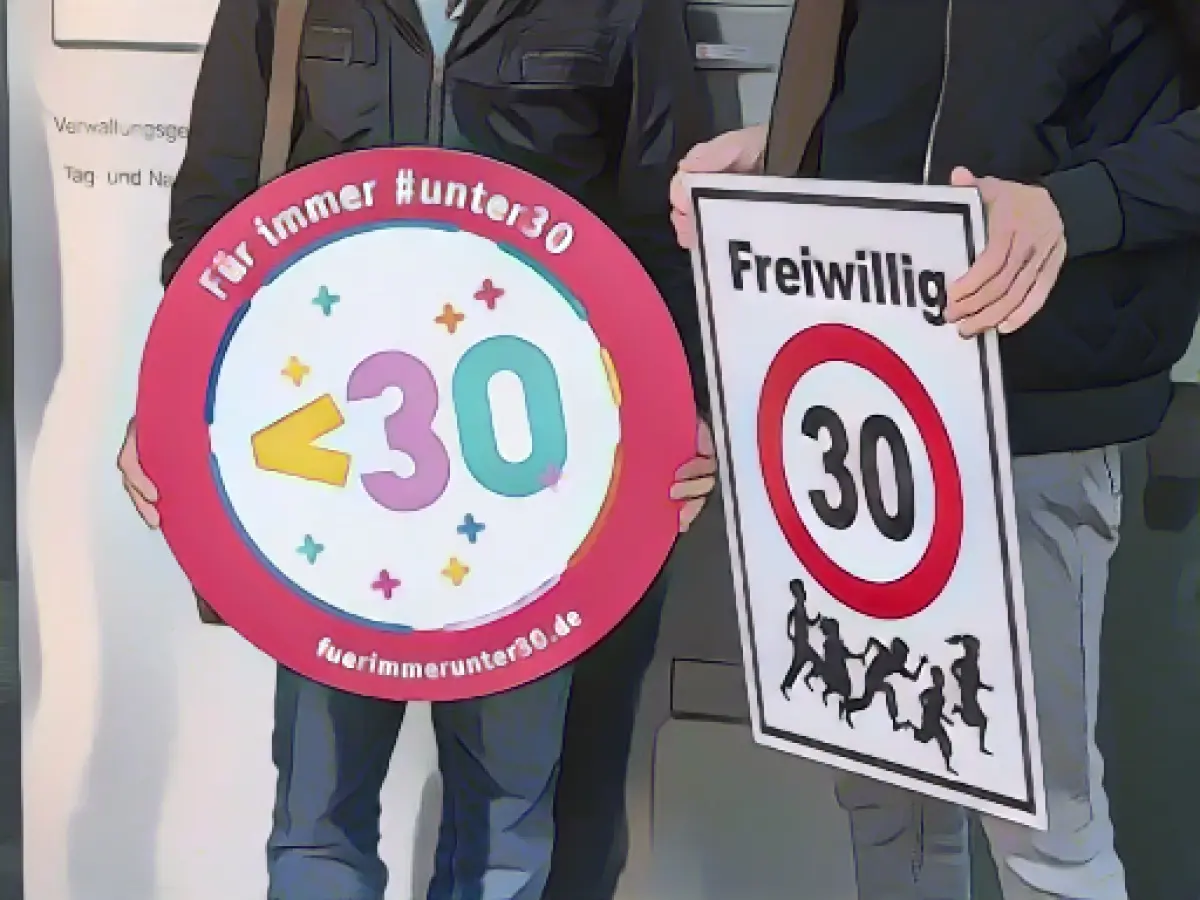The ongoing battle over unofficial 30 km/h speed limit signs in Lake Constance continues, with a new twist yet to be fully unveiled in court. Those residing in the area who support the voluntary speed limit are preparing to challenge official letters demanding the removal of the controversial signs, as confirmed by plaintiff's lawyer Remo Klinger.
The main contention revolves around the legality of residents posting their own speed limit signs on private property. The district office views these signs as an infringement upon public road traffic, due to their potential interference with established speed limits.
In a previous ruling, the Freiburg Administrative Court dismissed three lawsuits against the district administration office as inadmissible, primarily due to the absence of contestable administrative acts. The court, however, did take issue with the district office's method of announcing penalties.
The district office is now set to issue formal letters, referred to as administrative acts, to the affected parties. Following these letters, the Freiburg Administrative Court is expected to make its next judgement.
At the October hearing, opposing views on the voluntary speed limit signs came to a head. The contested signs, plastered with the words 'Voluntary', a replicated 30 km/h symbol, and silhouettes of running children, are distinguishable from official traffic signs, according to Deutsche Umwelthilfe (DUH). The usual limit of 50 kilometers per hour applies in these municipalities.
As the situation evolves, municipalities within the district may need to review their traffic regulations in light of the ongoing dispute.
- In the absence of explicit regulations on unofficial speed limit signs in Germany, municipalities may need to consider updating their rules to ensure alignment with justice and public traffic regulations.
- With the district office pursuing legal action against the speed limit signs, those involved must prepare for additional legal challenges in the coming weeks.
References:
Additional Insights:
While the current legal regulations regarding unofficial speed limit signs on private property in Germany are not explicitly stated in the provided sources, some general principles and guidelines related to speed limits and traffic control can be inferred.
In Germany, statutory speed limits are legally binding and must be obeyed on public roads. Some local authorities can establish non-statutory speed limits for specific road sections based on engineering studies and adhering to MUTCD guidelines.
Private property owners have the right to set their own rules, including speed limits, as long as they do not conflict with public law or safety standards. However, enforcing such rules might be a complex issue due to the overlap between public and private spheres.
To fully understand the specific legal stance in the Constance, Lake Constance, dispute, it would be essential to consult local ordinances, court decisions, or specific regulations from the region. The provided sources do not offer detailed information on this unique issue.








